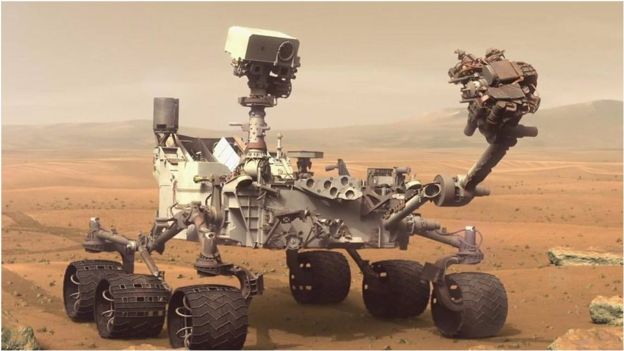Liquid Water Reservoir Discovered Deep in Martian Crust

Discovery Overview
Scientists have uncovered a significant reservoir of liquid water deep within the rocky crust of Mars. This discovery was made possible through the analysis of data from NASA’s Mars Insight Lander, which has been exploring the Red Planet since 2018.
Insights from Mars Quakes
The Insight Lander, equipped with a sensitive seismometer, recorded Mars quakes over a period of four years. By studying the vibrations, researchers were able to detect seismic signals indicating the presence of liquid water beneath the Martian surface.
First Evidence of Liquid Water on Mars
While previous studies identified frozen water at the Martian poles and water vapor in the atmosphere, this is the first time liquid water has been found on the planet. The water reservoirs are located approximately 6 to 12 miles (10 to 20 kilometers) below the surface, a finding published in the Proceedings of the National Academy of Sciences.
Importance of the Martian Water Cycle
Understanding the Martian water cycle is crucial for grasping the planet’s climate, surface, and interior evolution. According to Dr. Vashan Wright, the lead researcher from UC San Diego’s Scripps Institution of Oceanography, this discovery helps answer the mystery of “where did all the Martian water go?”
Implications for Mars’ History
Mars, which once had rivers and lakes, has been a barren desert for three billion years. While some of its water escaped into space due to atmospheric erosion, researchers believe that much of it is now trapped underground, similar to Earth’s water reserves.
Potential for Water Across Mars
The study suggests that similar reservoirs could exist across the planet, with enough liquid water to potentially cover the Martian surface with a layer over half a mile deep. However, this water is stored deep within the crust, making it difficult to access for future human exploration.
Search for Life on Mars
The discovery of liquid water also adds a new dimension to the ongoing search for life on Mars. As Prof. Michael Manga of UC Berkeley notes, liquid water is essential for life, meaning any habitable environments on Mars are likely hidden deep underground.


